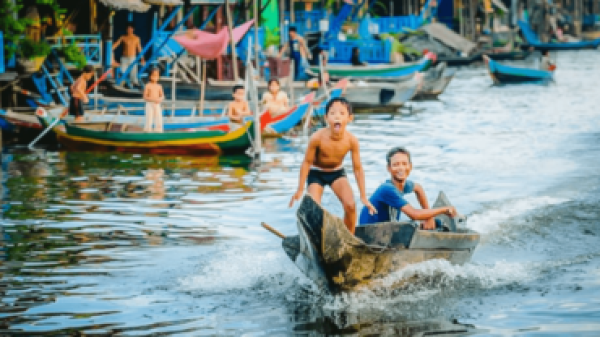
Rwanda, affectionately known as “the Land of a Thousand Hills,” offers one of Africa’s most remarkable travel experiences. This small, landlocked country in East Africa has transformed itself into a beacon of progress, safety, and natural beauty that captivates every visitor who crosses its borders.
Why Visit Rwanda?
Rwanda presents a unique combination of extraordinary wildlife encounters, stunning landscapes, rich culture, and a profound story of resilience. The country is perhaps most famous for its mountain gorillas, but there’s so much more to discover. From the pristine shores of Lake Kivu to the ancient Nyungwe Forest, Rwanda offers intimate wildlife experiences in some of Africa’s most well-preserved ecosystems.
What makes Rwanda particularly special is its commitment to conservation and sustainable tourism. The country has positioned itself as a premium destination where tourism directly supports local communities and wildlife protection. You’ll find that Rwandans are incredibly welcoming, and the country’s focus on cleanliness and organization creates a comfortable environment for travelers.
Best Time to Visit
Rwanda’s equatorial climate means you can visit year-round, but timing can enhance your experience. The dry seasons (June to September and December to February) offer the best conditions for gorilla trekking, with less muddy trails and clearer mountain views. However, these periods also coincide with peak tourist season, so expect higher prices and the need to book well in advance.
The wet seasons (March to May and October to November) bring lush, green landscapes and fewer crowds. While gorilla trekking is still possible, trails can be more challenging. If you’re interested in birdwatching, the wet season is actually ideal, as migratory species are present and the forest is alive with activity.
Essential Experiences
Gorilla Trekking in Volcanoes National Park
This is undoubtedly Rwanda’s crown jewel experience. Volcanoes National Park is home to several habituated mountain gorilla families, and spending an hour in their presence is truly life-changing. The trek itself can range from relatively easy to quite challenging, depending on where the gorillas are located that day. You’ll need to be reasonably fit, but the experience is accessible to most people.
Gorilla permits cost $1,500 per person and must be booked well in advance – sometimes months ahead for peak season. The price includes park entry, guide services, and the invaluable contribution to gorilla conservation efforts.
Chimpanzee Tracking in Nyungwe Forest
Nyungwe National Park, one of Africa’s oldest rainforests, offers incredible primate experiences beyond gorillas. The chimpanzee tracking here is exceptional, and you’ll also encounter other primates like golden monkeys, colobus monkeys, and baboons. The forest is also a birder’s paradise with over 300 species recorded.
The canopy walk in Nyungwe is East Africa’s only suspended walkway, offering breathtaking views 70 meters above the forest floor. It’s an exhilarating way to experience the forest from a completely different perspective.
Lake Kivu’s Serene Beauty
Lake Kivu, one of Africa’s Great Lakes, provides a perfect respite from wildlife activities. The towns of Gisenyi and Kibuye offer beautiful lakeside settings where you can relax, enjoy water activities, or simply soak in the stunning scenery. The lake’s unique chemistry means it’s safe for swimming – a rare treat in East Africa.
Cultural Connections
Rwanda’s cultural heritage is deeply meaningful and beautifully preserved. Visit the Ethnographic Museum in Huye (formerly Butare) to understand traditional Rwandan life, or experience a traditional dance performance that tells stories through movement and music.
The Genocide Memorial sites, particularly in Kigali, provide important historical context and are moving tributes to resilience and reconciliation. While emotionally challenging, these visits help visitors understand Rwanda’s remarkable journey and the strength of its people.
Practical Planning Tips
Getting There and Around
Kigali International Airport is well-connected to major African cities and some international destinations. The airport is modern and efficient, setting the tone for your Rwandan experience.
Domestic transportation is excellent by African standards. The country has invested heavily in infrastructure, so roads are generally good. Many visitors opt for organized tours, but car rental is also possible. Motorcycle taxis are popular for short distances in cities.
Where to Stay
Rwanda offers accommodations ranging from luxury eco-lodges to budget guesthouses. Near Volcanoes National Park, you’ll find some of Africa’s most spectacular lodges, often with volcano views and exceptional service. In Kigali, there are excellent hotels and guesthouses to suit every budget.
For a truly special experience, consider staying at one of the community-run lodges that directly benefit local people. These accommodations often provide more authentic cultural interactions while supporting sustainable tourism.
Health and Safety
Rwanda is considered one of Africa’s safest countries. The government has prioritized security and cleanliness, making it an excellent choice for first-time Africa visitors. You’ll notice the remarkable cleanliness – plastic bags are banned, and monthly community clean-up days are observed nationwide.
Standard travel vaccinations are recommended, including yellow fever if arriving from an endemic area. Malaria is present, so prophylaxis and prevention measures are important, especially in lower-altitude areas.
What to Pack
Weather can be unpredictable in the mountains, so layered clothing is essential. Bring waterproof gear for gorilla trekking – you’ll likely encounter rain and muddy conditions. Good hiking boots are crucial, as are gardening gloves to help with gripping vegetation during treks.
Budgeting Your Trip
Rwanda positions itself as a high-value, low-impact destination, which means it’s not a budget destination but offers exceptional value. Gorilla permits are the largest expense, but remember that this directly funds conservation. Accommodation ranges from $50-100 per night for mid-range options to $500+ for luxury lodges.
Local food is affordable and delicious – try ugali, beans, and the excellent local coffee. Transportation and local guides are reasonably priced, and tipping is appreciated but not excessive.
Sustainable Travel in Rwanda
Rwanda’s tourism model is exemplary in its focus on conservation and community benefit. When you visit, you’re directly contributing to gorilla conservation, reforestation efforts, and local community development. Choose operators that prioritize sustainability and consider extending your stay to maximize your positive impact while minimizing your carbon footprint.
Final Thoughts
Rwanda offers an incredibly rewarding travel experience that combines world-class wildlife encounters with meaningful cultural connections. The country’s small size means you can experience diverse landscapes and activities without spending too much time traveling between destinations.
Most visitors leave Rwanda feeling profoundly moved by both the natural beauty and the warmth of its people. It’s a destination that challenges preconceptions and creates lasting memories. Whether you’re seeking adventure, cultural understanding, or simply one of the world’s most unique wildlife experiences, Rwanda delivers in ways that few destinations can match.
Plan to spend at least 7-10 days to truly appreciate what Rwanda offers, and don’t be surprised if you find yourself already planning your return visit before you leave.
Request a quote

